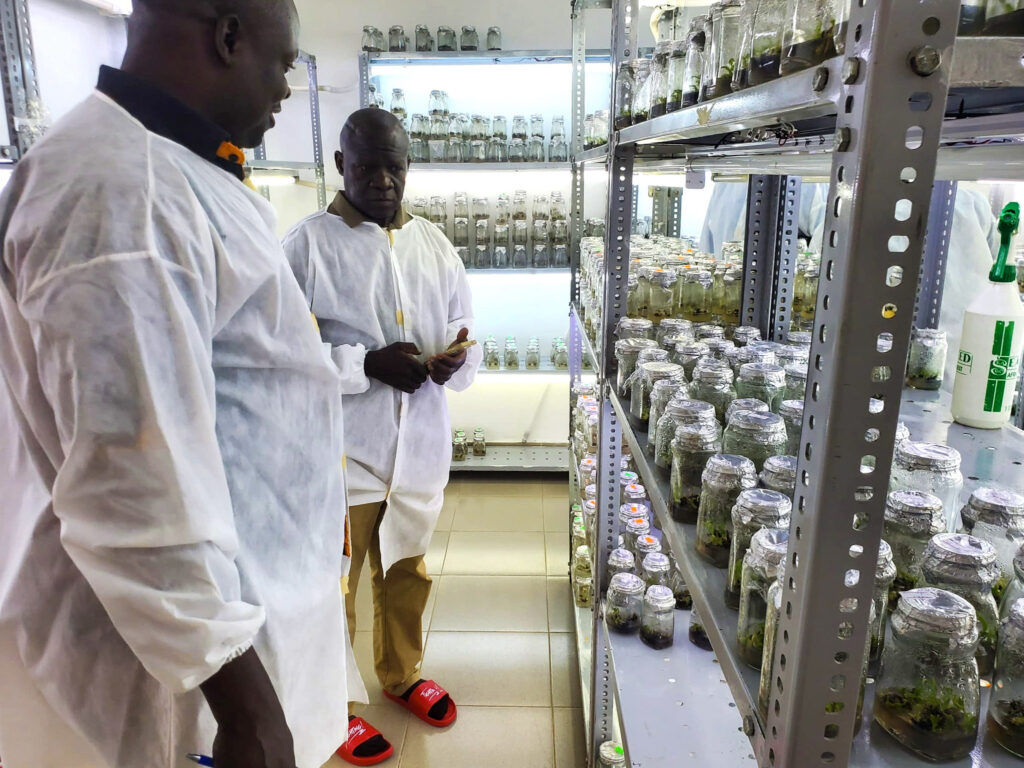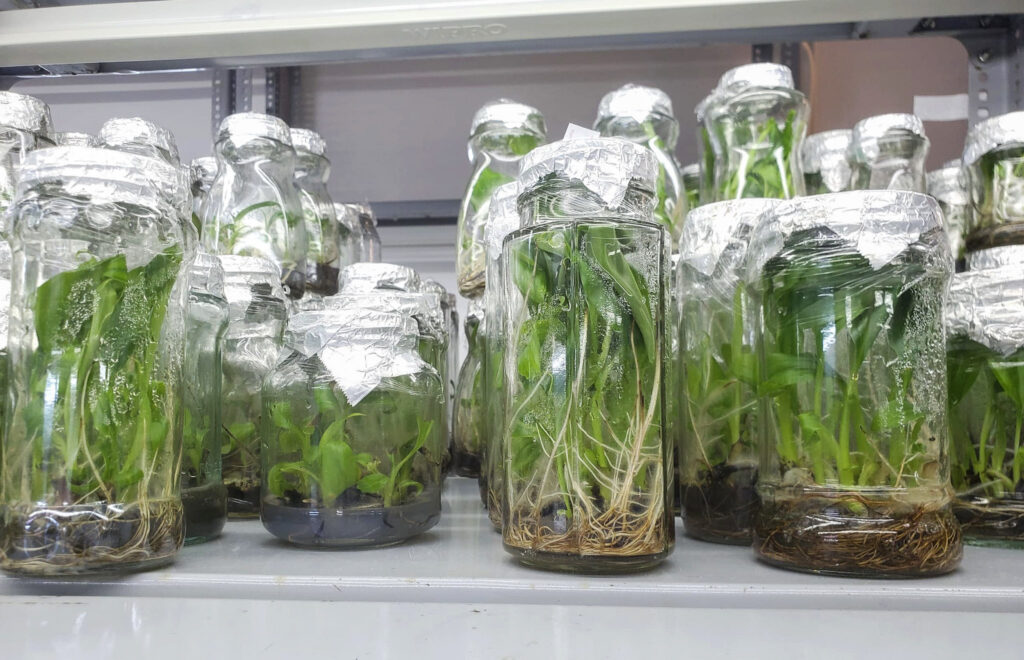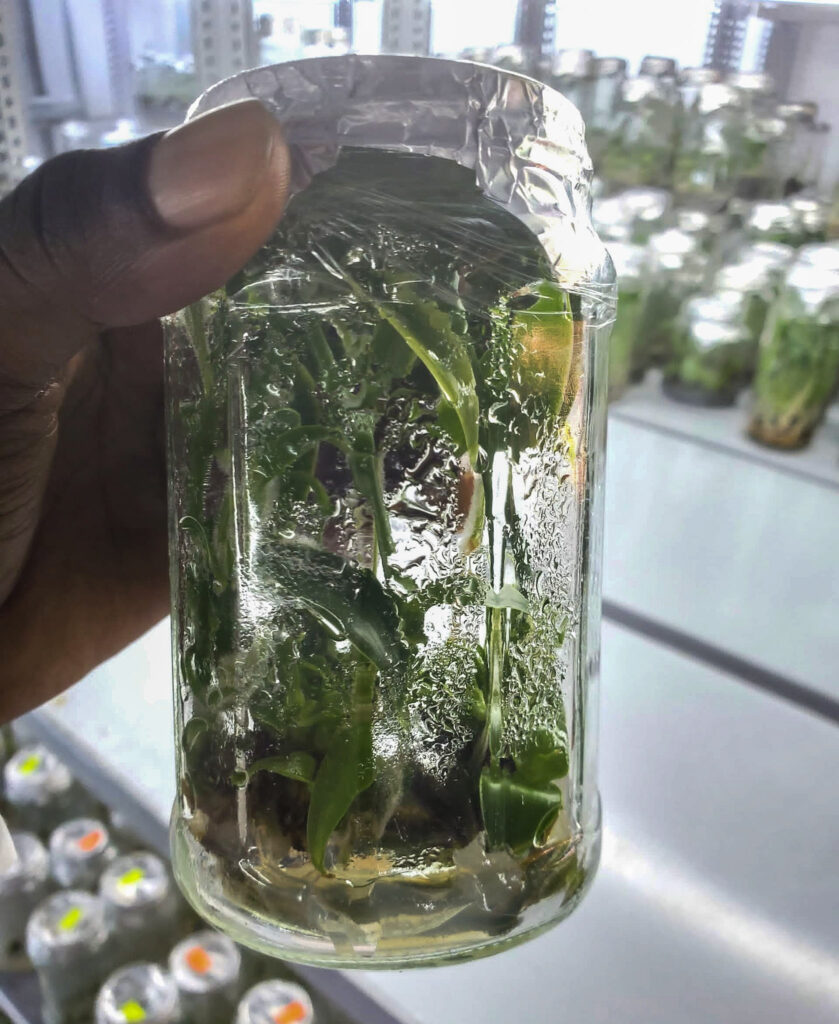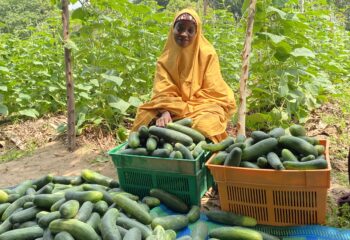
The Building Resilience and Inclusive Growth of Highland farming systems for rural Transformation (BRIGHT) project recently helped achieve a landmark development for Uganda’s potato value chain when the country issued its first license to a private seed company to commercially produce tissue culture plantlets and early generation seed potatoes.
This milestone licensure positions the company, Farm Inputs Care Centre Ltd. (FICA Seeds), to boost potato production in Uganda by unlocking reliable access to quality seed potatoes for smallholder farmers and transforming how public and private actors collaborate to solve systemic challenges in agriculture.
The licensing of FICA Seeds and its partnership with KaZARDI not only address the bottleneck in early generation seed production but also lay a foundation for a more predictable, affordable, and farmer-responsive seed potato supply system.
Currently, Uganda’s potato farmers face a shortage of quality seed potatoes because of limited production of early generation seed, including tissue culture plantlets, and the absence of licensed private certified-seed producers.
Despite their best efforts to remedy the situation, Uganda’s public research institute, the National Agricultural Research Organization (NARO), and its Kachwekano Zonal Agricultural Research and Development Institute (KaZARDI) have fallen short of the growing national demand for early generation potato seed.

In response to these problems, the BRIGHT project has facilitated a public-private partnership between KaZARDI and FICA Seeds, creating a pathway through BRIGHT’s inclusive market systems approach for sustainable, large-scale production of early generation seed.
Already, this partnership has enhanced private sector participation and ensured compliance with the Ministry of Agriculture, Animal Industry and Fisheries (MAAIF) national seed certification protocols, which have historically been too demanding for both formal and informal seed potato producers.
After a rigorous authorization process – which included evaluations by KaZARDI on the company’s lab infrastructure and technical capacity, among other challenging assessments – NARO approved, and FICA Seeds has become Uganda’s first private company licensed to produce tissue culture plantlets and commercialize early generation seed for locally bred potato varieties, including Victoria, KACHPOT 1, Rwangume, Kinigi, NAROPOT 1, NAROPOT 9, and NAROPOT 10.

By September 2025, FICA Seeds will begin supplying approximately 60,000 tissue culture plantlets annually to local seed businesses and screenhouse owners.
These plantlets are projected to yield 15 metric tons (mt) of pre-basic seed, which will be multiplied into 90 mt of basic seed, ultimately producing 540 mt of quality certified seed potatoes to be available to smallholder farmers every year.
In addition to supplying these starter materials, FICA Seeds will also provide technical support to screenhouse operators, further strengthening local capacity and ensuring production standards.
The licensing of FICA Seeds and its partnership with KaZARDI not only address the bottleneck in early generation seed production but also lay a foundation for a more predictable, affordable, and farmer-responsive seed potato supply system.
This initiative is a prime example of how BRIGHT is prompting innovation through strategic partnerships. As Uganda charts a path toward food security and agribusiness growth, FICA Seeds and KaZARDI signal what is possible when research, regulation, and private enterprise align to serve the farmer at the center.
The Building Resilience and Inclusive Growth for Highland Farming Systems for Rural Transformation (BRIGHT) project, funded by the Netherlands Ministry of Foreign Affairs through the Embassy of the Kingdom of the Netherlands, seeks to build the resilience capacity of farm households and farming systems in Uganda to increase income and food and nutrition security of all farmers and transform households from subsistence to more market-oriented in Kigezi, Mount Elgon, and Rwenzori regions. The project is being implemented by the International Fertilizer Development Center (IFDC) in cooperation with Agriterra, the Uganda Ministry of Agriculture, Animal Industry and Fisheries (MAAIF), the National Agricultural Research Organization (NARO), district local governments, and private sector partners.





